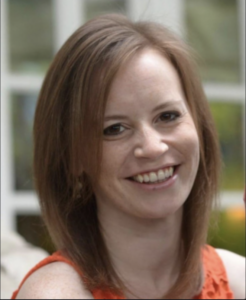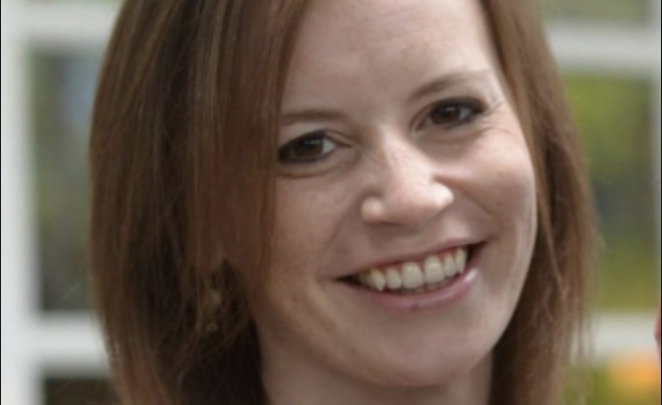The NC Conference Commission of Archives & History is in the process of digitizing many of our holdings so that you can access these materials from home. Books published by the NC Conference, pictures from the Clergy Pictorial Directories, local church histories, and other historical documents can be searched right from our website and the files can be downloaded to your computer. Visit the Archives Search page to get started, and check back often as new material is frequently added.
Announcements
Clergy Pictures Online
Pictures from the Clergy Pictorial Directories are now available online through the Archives website. Pictorial Directories and supplements from 1971 through 2011 are available. Need a picture of your pastor for your website, newsletter, or other publication? Writing a church history and looking for older pictures of your previous pastors? You can now search on the Archives website for the clergy pictures you need or go directly to the year and browse through the alphabetical list. This collection of clergy pictures is part of an ongoing project to digitize the archival holdings of the NC Conference. See what else is available in the Digital Archives.
Past Newsletters
The NC Conference Historical Society/Commission on Archives and History newsletters from 2005 to the present are now available online. View them on the Newsletters page.
Historic NC Conference Churches
The Archives & History Committee has posted a 2016 PDF presentation on Historic Churches in the NC Conference.
Digitizing Your Church Records
What is digitization? The conversion of traditional records into digital or electronic form. When referring to digitization of church records, the main group of documents are the historic records of the church. This covers paper records such as correspondence, committee reports, and photographs. Another important group are new ones being received at the current time. These would be fewer in number because most documents now are created and circulated electronically via email and the like.
Why Digitize? There are many reasons for digitizing your records. One is to preserve them better, especially when they have already becoming fragile from old age. Traditional records are already in danger of being lost because of their age, the difficulties of storage, or lack of proper care. Another reason for digitizing your records is space saving – which is limited in many churches. Digital records are also easily shared, and they can be copied, printed, and displayed with ease. They can also be integrated into many church’s current administration system where much is already digital. One of the best reasons for digitizing is ease of locating information. This is the case with printed material which can be turned into editable and searchable electronic files. Unfortunately, hand-written documents cannot yet be easily turned into editable and searchable documents – probably many of the older records of your church fall into this category. However, they can, at least, be viewed electronically, and stored with the rest of your church’s electronic documents.
How can your Conference Archive help? It is a big undertaking to digitize your church’s entire collection of historical records, so it needs to be planned and managed well. It needs good IT support and archival expertise to achieve a satisfactory outcome. The North Carolina Conference of The United Methodist Church Commission on Archives and History offers to facilitate the digitization of your historical records. We are willing to help you choose which records should be digitized and we are willing to do the work of digitizing the records for you. After digitizing the records, we will return the originals and a digitized copy of the records to you. We will also house a copy of your digitized records in the Conference Archives.
If you are interested in preserving your church’s historically significant records, please contact either:
Commission Chair – Douglas Jonas at (919)771-6882 or dcjonas2000@gmail.com
Commission Archivist – Rev. Dennis Lamm at (252)521-1452 or lammbo@nccumc.org
A Short History of the Formation of the North Carolina Conference
In the beginning (1795-1800), the territory known as North Carolina was divided between the Virginia and South Carolina Conferences of the Methodist Episcopal Church with the Virginia Conference getting “the lion’s share” of the territory. Then in 1800 the Western Conference was formed and included all of the territory that was west of the Blue Ridge; an area which today covers 15 counties. Most of this territory being taken from the South Carolina Conference.
Then in 1824 we have the formation of the Holston Conference. This new Conference was formed from territory taken from Tennessee and South Carolina Conferences along with the inclusion of the Western Conference.
The next major change came in 1837 with the formation of the North Carolina Conference. The Virginia Conference gave up most of the area it held in North Carolina with the exception of the northeast area; an area which covers 9 counties today. Then in 1844, all of these conferences became a part of the Methodist Episcopal Church, South. In 1850, the South Carolina Conference gave up territory from New Hanover county to Richmond and Montgomery Counties. The South Carolina Conference continued to hold territory in the western area of North Carolina until 1870.
In 1890, the Western North Carolina Conference was formed out of the North Carolina territory of the Holston and South Carolina Conferences of the M. E. Church, South with the Virginia Conference maintaining the northeast area until 1894. The North Carolina Conference has remained much like it was in 1894 with little exception.
What is the future for the North Carolina Conference map lines; who knows but if it is like the past it will change in the future!
Coronavirus and History
Looking for something to do during this time of having to stay home? Let me give you a couple of ideas for putting your time to good use. First, record what your church and church members are doing to get through this trying time and at the same time “be the church”. Secondly, now that you have some extra time you might want to consider doing some historical research on your church, your pastors, write a history about your church, or interview persons (on the phone or Zoom) about their feelings on the Pandemic or just any other subject that pertains to Methodism.
And the Archives can help you! We can suggest web sites for you to look at on the subject you are seeking information about, we can suggest ways for you to research the internet to find information, we just might have the information in our computers or on our personal bookshelves. So, don’t miss this opportunity to do something constructive for yourself, your church, your denomination.
What do you do with your finished product? You send it to the Archives at archives-history@nccumc.org or use this email address to contact us. What we will do with it; articles will possibly be posted on the conference site with your permission. All that we receive, will be scanned into our database and be available for researchers in the future who are seeking information on a particular subject.
Remember, what is common information today will be of historic interest in 50 or 100 years in the future.
Dennis Lamm
Archivist-NCCUMC
Archives Receives Gifts
The North Carolina Conference Archives has recently received two nice gifts. The largest gift ever received came from the estate of the late Rev. L. Franklin (Frank) Grill; former historian and Archivist of the North Carolina Conference. This gift consisted of most of his library and all of his personal and research papers on various subjects. At the present time we have only been able to receive part of the gift as the Pandemic has interfered with our being able to pick up the second half of the gift. This is not only one of the largest private gifts of new material that the Archives has ever received but it is of tremendous value to someone researching the numerous subjects covered by the gift.
A second gift came to the Archives from a family member of the late Rev. Chancie D. Barclift. This gift consisted of a large number of papers concerning Charlie Soong, who was at one time a member of Fifth Street UMC and who returned to China to spread the gospel. He was also the father of Mayling Soong Chiang (Madame Chiang Kai-shek). There also were a nice number of documents on Women’s Society history and various other subjects.
We would hope that there might be others in our Conference who have books, papers and other memorabilia of our Conference that they would consider giving to the Archives. You can email the Archives at archives-history@nccumc.org or call Dennis Lamm @ 252-521-1452. We appreciate any and all gifts!
Dr. Ashley Boggan Dreff Named General Secretary of GCAH
 Dr. Ashley Boggan Dreff, cradle United Methodist, professor and author of Entangled: A History of American Methodism, Politics, and Sexuality and #Nevertheless: American Methodists and Women’s Rights, has been elected as General Secretary of the General Commission on Archives and History (GCAH). Her nomination from the search committee was voted and approved at a special meeting of the Commission on Oct. 30, 2020.
Dr. Ashley Boggan Dreff, cradle United Methodist, professor and author of Entangled: A History of American Methodism, Politics, and Sexuality and #Nevertheless: American Methodists and Women’s Rights, has been elected as General Secretary of the General Commission on Archives and History (GCAH). Her nomination from the search committee was voted and approved at a special meeting of the Commission on Oct. 30, 2020.
Dreff will come to GCAH from her current position as Assistant Professor of Religion and Director of Women’s and Gender Studies at High Point University. “I’m so incredibly honored, excited, and humbled to have been elected General Secretary,” said Dreff. “This is a dream come true for me. As a scholar, a Methodist historian, and the child of two UMC ministers, I’ve sought professionally to be a bridge between the church and the academy.”
“The whole denomination will be well served by Ashley’s passion for UMC history and her accomplishments to both the academy, her previous service to the Connectional Table and as a lifelong United Methodist,” said Bishop Jeremiah Park, head of the GCAH Commission. “We welcome her with gratitude for what’s formed and shaped her faith journey and how that will be part of the UMC’s future as a leading custodian of its history-making future.”
By preserving and promoting the UMC’s past, GCAH helps the church live into its future authentic to its sources. It offers assistance to local churches and Annual Conferences through publications, workshops, research services, and other programs. The Commission maintains relationships with the five Jurisdictional Commissions on Archives and History, the Central Conferences, the World Methodist Historical Society, the Historical Society of the UMC, the African American Methodist Heritage Center, the EUB Advisory Council, the Association for the Study of the Hispanic/Latino UMC, and the World Methodist Council.
“These next few years are going to be history in the making for The United Methodist Church,” said Dreff.
As an independent and neutral entity charged with keeping of the Church’s permanent record, GCAH brings context and insight to the visioning, planning, and programming of the UMC.
“GCAH will continue its ministry of memory,” stated Dreff, “and part of this ministry is leading and joining in tough conversations. Going back to the days of Wesley himself, Methodism has never been a unified movement. Its history is at times oppressive, harmful, and compromising, but it’s also liberating, hopeful, and revolutionary. I hope to work with the general agencies and caucuses to highlight the good, the bad, and the complicated stories of Methodism worldwide.”
Dreff will begin her work with GCAH on January 1, 2021 after relocating to Madison with her husband, Erik, and their two children. “I hope to inspire other scholars to explore Methodism’s complex relationship with various minority groups,” she said. “If there are any burgeoning Methodist historians out there, please reach out to me for support and encouragement.”

